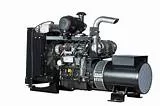DONS EZE, PhD, Political Philosopher and Journalist of over four decades standing, worked in several newspaper houses across the country, and rose to the positions of Editor and General Manager.
A UNESCO Fellow in Journalism, Dr. Dons Eze, a prolific writer and author of many books, attended several courses on Journalism and Communication in both Nigeria and overseas, including a Postgraduate Course on Journalism at Warsaw, Poland; Strategic Communication and Practical Communication Approach at RIPA International, London, the United Kingdom, among others.


